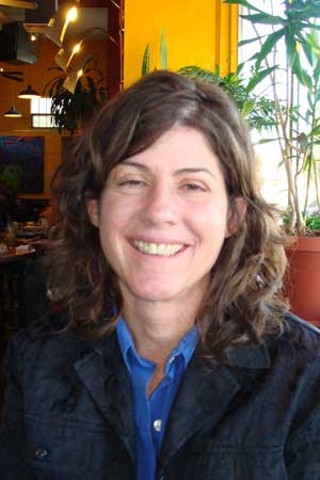What inspired you to become an activist?
Before I had a chance to express my activism, I had always been a bit of a closeted activist. I think I've always had this calling for doing something to make the world a better place. ... When I worked at the University of Arizona, I became involved ... in getting domestic-partnership benefits. At the time, I couldn't believe that the UA and Arizona State University were the only two of the Pac-10 universities that didn't offer these benefits to their employees. Then, in 2005, I wrote a passionate editorial about the recognition of same-gendered relationships, and after it was published in the Arizona Daily Star, I was invited by Wingspan to speak at a rally. Life just took over then, and amazing opportunities to express my activism have continued to open up for me.
Why was it important for you to get involved with Arizona Together and Wingspan?
There are so many reasons why this was important for me. I am continually appalled by the ease with which some human beings discriminate against the LGBTQ community. They persevere in using us as scapegoats for their failed marriages instead of addressing the real issues that affect the stability of their relationships. They hallucinate that we are somehow hurting their so-called traditional definition of marriage. But the only people who are truly being hurt are us: adults engaged in consensual, caring relationships, and our families.
How do LGBT rights and border/immigrant rights go together for you?
A few months ago, I was telling a friend of mine, "When did it happen that I suddenly have the same fear to come out as Mexican as I do about coming out as a lesbian?" At first glance, people would not assume either of the two is true about me, so I literally have to come out on both things. Because of this, I have actually been in situations where people will candidly express anti-immigrant or anti-Mexican sentiments, assuming I would be sympathetic. I have told people, "Do you realize I am a Mexican?" When I say this, I am not trying to deny my U.S. citizenship; I am one of the few fortunate to have dual citizenship. What I am trying to do is illustrate the profound and meaningful diversity of our country.
You were born in Mexico and grew up there. How did your family find themselves there?
Both of my parents are U.S. citizens. My mom was from Boston; my father's family was from Bermeo, Spain, but he grew up in San Pedro, Calif. They met at the University of California at Berkeley. My father was an electrical engineer with Westinghouse, and they sent him all over the world. I have two siblings who were born in Rio de Janeiro ... another brother who was born ... in Austria, and my twin sister and I were born in Mexico City. I moved to the United States in my early 20s to finish my undergraduate degree in journalism. I like to think of myself as a reverse immigrant.
In Tucson, we're in an interesting spot regionally. Do you think that those who care about border issues and those who care about LGBT issues are going to have to come together?
In fact, they already have been collaborating for many years. Several LGBTQ-rights rallies in Tucson have included ... my personal border-rights mentors, such as Isabel Garcia, Dolores Huerta, Raúl Grijalva, Richard Elías and many more. From a civil rights perspective, the two communities have a lot in common. Both have been vilified, attacked and blamed for societal ills. ... In response, both communities have found a common voice in fighting discrimination.





